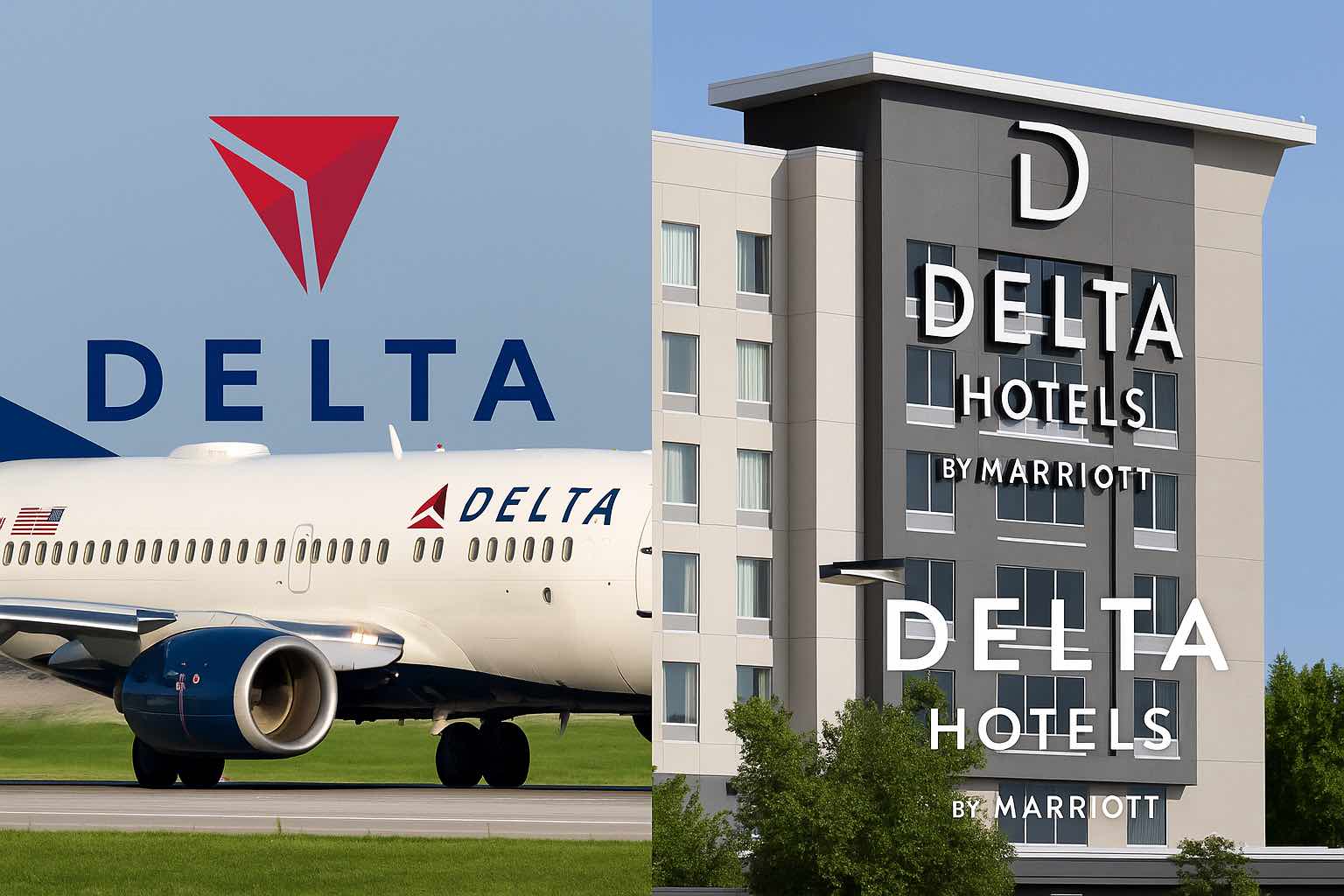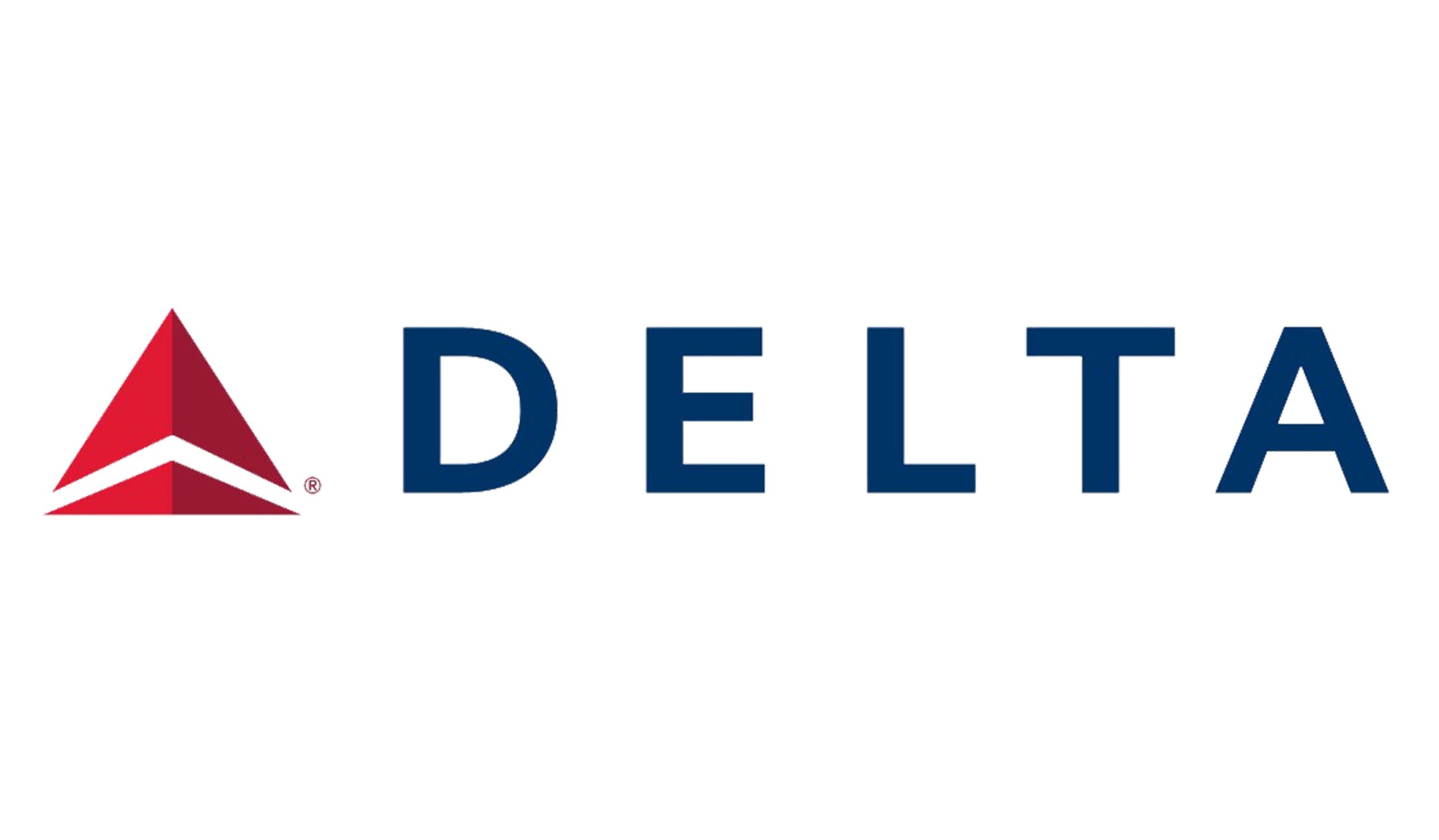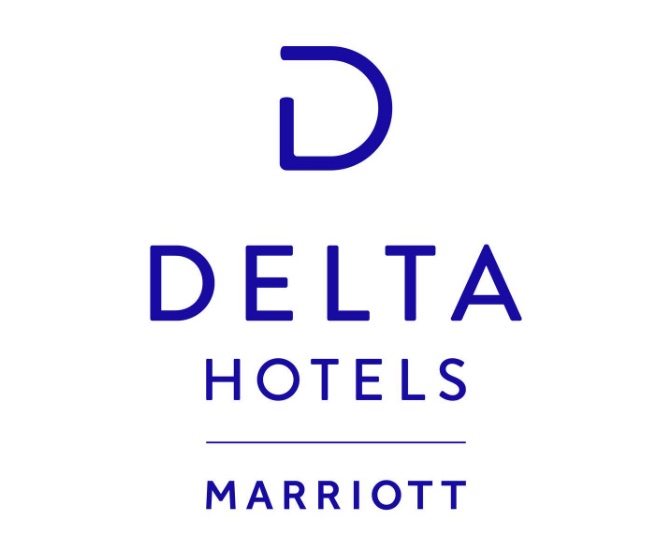
Two global travel brands share one powerful Greek letter, and now a courtroom will decide who owns its meaning.
Delta Air Lines Sues Marriott Over “Delta Hotels” Branding
Delta Air Lines has taken Marriott International to court over the “Delta Hotels by Marriott” brand, arguing that Marriott is “hijacking” Delta’s marks and goodwill by using an identical name in the same broad travel sector. The dispute, filed in federal court in Atlanta and now moving forward, centers on claims of trademark infringement and dilution tied to the DELTA word mark and related iconography.
Marriott acquired Canada’s legacy Delta Hotels chain in 2015 and has since expanded the brand in North America and beyond. My children found themselves unexpectedly at a Delta Hotel in Fargo, North Dakota after a Sun Country diversion over the summer. Delta Air Lines, for its part, points to decades of consumer association with its name and the famous red “widget” triangle, first introduced in 1959, as core brand assets that anchor its identity across signage, aircraft, apps, and marketing.
Trademark law turns on whether ordinary consumers are likely to be confused about source, sponsorship, or affiliation. Delta argues that overlap across the same customer journey, including search results, booking funnels, airport-area signage, loyalty messaging, and co-marketing, creates a real risk that travelers will assume a connection between Delta Air Lines and Delta Hotels. Marriott maintains that Delta Hotels is a long-standing name (dating back to the 1960s in Canada) and is clearly identified as a Marriott sub-brand, reducing confusion.
My Thoughts
In my view, this lawsuit has merit. Here’s why:
- “Delta” is the lead term in both brands. Consumers skim. They see the same headline word attached to travel. That’s a classic confusion trigger.
- Airlines and hotels sell adjacent services in one trip. They share channels (OTAs, metasearch, co-branded pages, airport corridors). Proximity increases confusion risk. Marriott has bought this Canadian brand into U.S. markets, overlapping areas served by Delta Air Lines
- Search “Delta hotels near ATL” or “Delta reservations.” It is easy for an average traveler to assume official affiliation, loyalty earn/burn, or bundled booking when none exists. That’s precisely what trademark law tries to prevent.
- Because Delta’s mark is globally famous, it enjoys stronger legal safeguards against dilution, even outside identical products or services.
But here’s the kicker for me: While Marriott does not use the widget, its uppercase styling of Delta is exactly like Delta’s logo…creating real consumer confusion (including from me, when I booked that Delta Hotel in North Dakota). Hotels and airlines have long been intermingled (for example, United Airlines once owned Westin and Pan Am created the InterContinental hotel chain).
Marriott can argue heritage and its clear “by Marriott” suffix, but the average traveler doesn’t parse sub-branding that carefully. The dominant term, DELTA, does all the work, and Delta Air Lines has built immense recognition around it. In this context, I think the airline’s argument for consumer confusion is compelling.


I don’t think Marriott will be barred from using the fourth letter of the Greek alphabet, but I think it will be ordered to refresh its logo and make its association with Marriott much clearer.
Finally, just like SAS and Radisson once had a deep partnership, I’m not sure it would hurt Delta to partner with a hotel chain (it would fit in well with Delta’s vertical integration approach). But that’s not the matter before us and I think Marriott will lose because of the way it chose to stylize its sub-brand.
CONCLUSION
Two major brands collided the moment Marriott placed “Delta” on hotel façades near airports where Delta’s own logo dominates the skyline. Legacy aside, the question is simple: would an ordinary traveler believe these Deltas are connected? In my view, yes, and that’s why this lawsuit deserves to be taken seriously.




Delta Air Lines and Delta Hotels are within the same industry (travel) so I do agree. Whereas, no one is confusing Delta faucets with the airline or hotel.
Now, so long as DAL pays ‘gratuities’ to the administration, maybe a visit to Mar-A-Lago, I think they’ll pull this off, regardless of the merits, one would imagine.
Hmm.
Delta Airlines tolerated Delta Hotels for decades, allowing Delta Hotels to tie up substantial goodwill in the shared name. This is the first I have heard of Delta Airlines trying to police the copyright in the travel sector. (Nor has it attempted to police is trademark against Delta faucets, but that connection is more attenuated).
Delta Hotel’s branding is valuable to it and Delta Airlines should not be permitted to deprive Delta Hotels of the value it invested in its branding while Delta let Rome burn, thinking they can continue to squat on the name. But you are correct – the issue is whether Delta Hotels gains some benefit because they a sponging off Delta Airlines’ brand. As for me, Delta Airlines is not so fantastic a product that any confusion would give rise to my inferring that Delta Hotels is of any particular quality – what next, an inference that hypothetical Spirit Hotels or Allegiant Hotels are quality joints?
Delta Hotels has slept on its rights, watching a travel industry participant invest and develop goodwill in the same name to the point that by 2023 there were 93 Delta Hotels properties. I am not sympathetic. I do not expect that Delta Airlines will get bounced as a matter of law – their best hope may be that Delta Hotels does more to confirm corporate distinctiveness as part of a settlement.
I believe this dispute between Delta Air Lines and Marriott International started in 2019 or 2020. So it’s not exactly “new.” It’s just taken 5 years to reach the the courts, which isn’t unusual.
I’ve stayed at multiple Delta hotels and never once considered it could be part of Delta Airlines. There’s not even a delta letter in the logo. Why not bring this up 60 years ago?
Next Delta should sue 12-year old, North West, because she could be confused with the airline merged into Delta 36 years ago.
In the U.S., Delta Hotels is such a weak and unknown brand that there should be a settlement. How about Delta Air Lines paying $100,000, a drop in the bucket for Delta, and Delta Hotels, agreeing to change all of their signs and name to Delfa Hotels or Delsa Hotels or Delva Hotels. Changing one letter of the sign may not be as expensive if the lettering is actually many signs, each with one letter.
Alrighty, King Solomon. “Cut the baby in half!” (Kidding, you have a reasonable proposal.)
but matthew, why is this avoiding the fact that Delta Air Lines only has a federal trademark in the Transportation and Storage (specifically for air transportation services) category? the purpose if a trademark is to clearly state intended purposes. interestingly enough, i think Delta (the airline) used to have a registered trademark for “hotel services” that they let lapse. i would not be surprised in discovery that this small detail shows that the airline let go their interest in anything related to the hotel industry. actually, i get more confused with Delta faucets when at Home Depot than i do between the hotel and the airline.
Before Marriott bought Delta, Delta had ZERO hotels outside Canada. They didn’t gain anything by continuing the name Delta. They could have grandfathered legacy Canadian properties into the Marriott or Sheraton brands. It made no sense to open new properties in the United States under the Delta brand. Moreover, the Delta properties outside Canada are more like a Four Points by Sheraton or Holiday Inn than the pre-Marriott Delta properties in Canada, which were somewhere between a Westin and Sheraton.
Correct on all counts. Delta Hotels were a well-established Canadian (only) brand and rarely interacted with DAL, who had few flights to Canada anyway. Then Marriott bought the chain and elected to expand the brand (for whatever reason I’ll never understand). Now it actually does compete and cause confusion in the travel market.
The irony is that, ever since Marriott bought out Delta Hotels, the brand has lost it’s way. If I offered you a “Delta by Marriott” branded option, what do you imagine? At least the old Canadian Delta Hotels had a theme of being a relatively affordable and tidy full-service hotel chain that served the business traveler and leisure to a lesser extent. A great value for money. Now it means nothing.
Legacy Delta was a 4-star hotel and had probably the best loyalty program in North America, including a breakfast benefit, an upgrade benefit, NIGHTLY TURNDOWN SERVICE, a yearly F&B credit, and even bonus frequent flyer miles through Air Canada. They also had elegant club lounges. Now, in the USA, a Delta is at best a Holiday Inn. Some of the Canadian properties are still nice but they’re slowly removing the club lounges as properties renovate.
Correct on all counts. Delta Hotels were a well-established Canadian (only) brand and rarely interacted with DAL, who had few flights to Canada anyway. Then Marriott bought the chain and elected to expand the brand (for whatever reason I’ll never understand). Now it actually does compete and cause confusion in the travel market.
The irony is that, ever since Marriott bought out Delta Hotels, the brand has lost it’s way. If I offered you a “Delta by Marriott” branded option, what do you imagine? At least the old Canadian Delta Hotels had a theme of being a relatively affordable and tidy full-service hotel chain that served the business traveler and leisure to a lesser extent. A great value for money. Now it means nothing.
Airlines and Hotels each use plumbing parts but neither bother Delta Faucets about their name.
How ironic that Delta Air Lines cares about intellectual property infringement after they could think of no other way to describe their A350 than “Flagship” despite the AA copyright.
What goes around comes around…
Time for…AmericanOne!
I would like to think that the courts keep a one word five lesser 4th letter of the Greek alphabet word out of this.
Both started at the same time give or take. Delta did not do anything about the branding of an adjacent brand for over 60 years.
This case should lose because it is not timely.
Very interesting case. I have tried a number of trademark and trade dress cases in both federal court and before the TTAB. I haven’t read the complaint yet, but based on what I’m hearing, the complaint should certainly survive the inevitable 12(b)(6) and move forward. The fact that there has been actual confusion is critical.
To the commenter who indicated that Delta had registered their TM in only one class, that is really of no moment here. There is also common law trademark protection which comes into play. I’d also like to know how (or if) the TM is registered under the Madrid protocols
I noted this elsewhere, but there’s another angle – while IIRC Delta Hotels was mostly a “big downtown business hotel” in the Sheraton/Westin/Marriott brand sector in Canada, the Delta Hotels that have popped up in the US are just random potluck. So it’s not like Marriott can say they were expanding the brand in line with what it was in Canada – they’re just throwing it on random Courtyard-level conversions.
Of course, the other issue that comes to mind is…well, can you imagine the trademark-confusion mayhem if the DTW Westin was rebranded as a Delta Hotel (in line with the Canadian hotels in the brand)?
An explosive lawsuit… Let’s wait and see the court’s final decision!
Dr. Güntürk Üstün